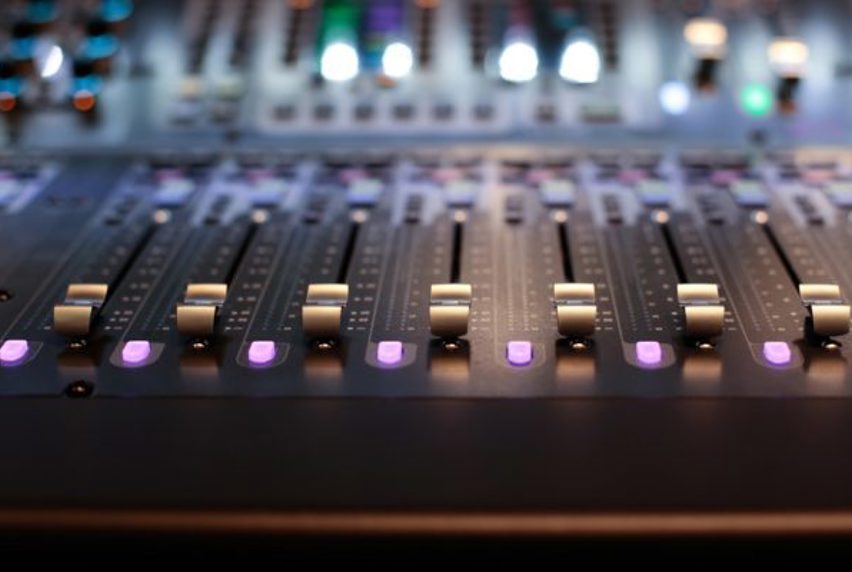So you want to work in sound production?

A career in sound production opens up a world of possibilities for musicians, where they can hone their craft of making recorded music, and they can forge a dynamic career in this creative industry.
The breadth of opportunity is startling, says Jesse Roberts, Melbourne Polytechnic Program Lead – Sound Production.
He points to the variety of work available in the industry – live gigs, festivals, theatre, film and television, and roles as recording engineer, mixer, mastering engineer, and music producer.
Jesse suggests the potential for a diverse career is one of the most appealing aspects of sound production: “People often work across multiple sectors. You’ve got titles like ‘sound designer’, that can be a creative and technical role that’s across web, TV, and radio, but can also be a live role like venue installation or theatre playback.”
Transferable skills and opportunities
While holding a variety of roles is possible, Jesse says the option to specialise in one focus area is absolutely there. The beauty of the craft is not being limited; sound engineering is a transferable skill, in demand across the creative industries, with opportunities for moving between roles.
For musicians more interested in cultivating their personal creativity, up-skilling can provide freedom in recording original music and improve professionalism in a live sound environment. As Jesse puts it: “People often want to start with demystifying the process of producing music. This can lead to an abundance of opportunities in composition, remixing, arranging, and recording.
Music beats in Melbourne
Opportunities likewise abound for those passionate about film, radio, and television. Radio and TV require console operators, program managers, audio directors, and broadcast crews. Audio post-production (film, TV, and games) is crafted by a team of skilled professionals including sound supervisor, sound designer, foley artists, dialogue editors, and re-recording mixer; in addition to this, boom and location recordists provide a foundation of audio.
Practically speaking, Jesse is quick to point out the capacity to ‘diversify your income streams’ is supported by employment opportunities in live sound in Melbourne: “It’s like learning a trade. If you have the skills, the work is there.” Music Victoria’s Melbourne Live Music Census revealed a thriving live music industry. With 73,000 gigs recorded in 2017, and more venues per capita than any other city, Melbourne is the live music capital of the world; each Saturday night Melbourne’s live music venues draw the equivalent audience of an AFL Grand Final.
Live sound technicians can easily apply their skills to theatre, as well as opportunities in corporate AV managing sound for conferences and meetings.
Big or small, possibilities are endless
How do you know if sound production is the right career for you? What all aspects of sound production have in common is a commitment to clear communication and making things sound beautiful.
So whether you want to work in the stadium or the tiny bar, the studio or the festival, the world of TV, film and radio or the theatre, the live location or the darkened room, consider enrolling in Melbourne Polytechnic’s Theatre based courses and open up a world of thrilling possibilities.